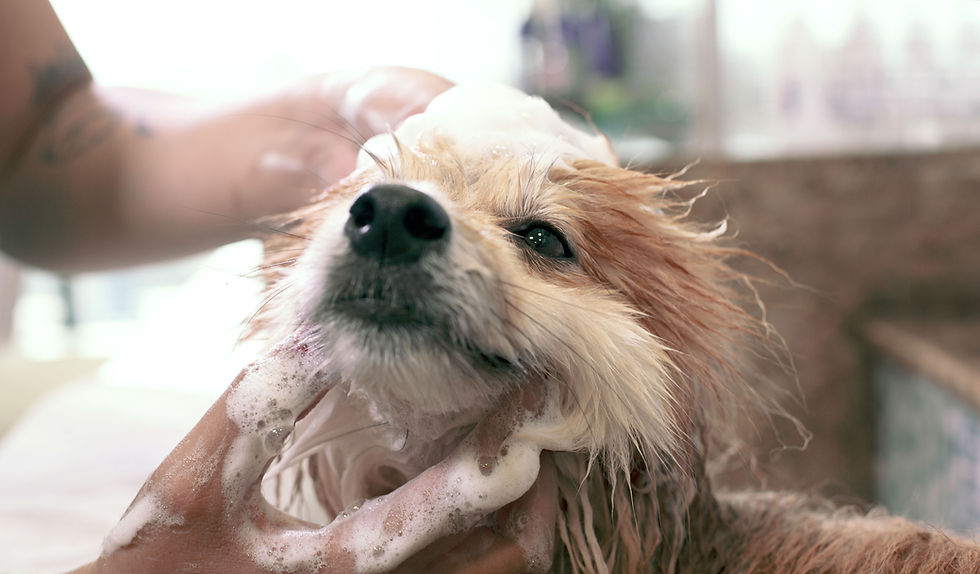Pet skin conditions can be a source of discomfort for both pets and their owners. From itching and irritation to inflammation and infections, skin issues can impact your pet's quality of life. Understanding the common skin conditions that affect pets and knowing how to prevent and treat them is essential for maintaining your furry friend's health and well-being.

Common Pet Skin Conditions
1. Allergies:
Allergies are a prevalent issue in pets and can be caused by various factors, including food, pollen, dust, and fleas. Common symptoms include itching, redness, and skin inflammation.
2. Flea Infestation:
Fleas are tiny parasites that can cause intense itching and skin irritation in pets. Flea bites can lead to allergic reactions and even transmit diseases such as tapeworms.
3. Hot Spots:
Hot spots, also known as acute moist dermatitis, are inflamed, red, and painful areas on the skin caused by excessive licking, scratching, or biting. These spots can become infected if left untreated.
4. Dry Skin:
Dry skin is characterized by flakiness, dullness, and itching. It can be caused by factors such as environmental conditions, poor nutrition, or underlying health issues.
5. Ear Infections:
Ear infections are common in pets, particularly dogs, and can cause discomfort, itching, and foul odor. They are often caused by bacteria, yeast, or allergies.
Prevention Tips
1. Regular Grooming:
Regular grooming is essential for maintaining your pet's skin and coat health. Brushing your pet's fur helps remove dead hair, distribute natural oils, and prevent matting.
2. Healthy Diet:
Providing your pet with a balanced and nutritious diet is crucial for supporting overall skin health. Ensure your pet's diet includes essential fatty acids, vitamins, and minerals.
3. Parasite Control:
Implement a year-round parasite control program to prevent flea infestations and other external parasites. Use flea preventatives recommended by your veterinarian.
4. Environmental Management:
Keep your pet's living environment clean and free from allergens, such as dust, pollen, and mold. Regularly vacuum carpets, wash bedding, and maintain a clean home.
5. Regular Veterinary Check-ups:
Schedule regular check-ups with your veterinarian to monitor your pet's skin health and address any potential issues early on. Your vet can also recommend preventive measures and treatments tailored to your pet's needs.
Treatment Options
1. Medication:
Depending on the underlying cause of the skin condition, your veterinarian may prescribe medication such as antihistamines, antibiotics, or anti-inflammatory drugs to alleviate symptoms and treat infections.
2. Topical Treatments:
Topical treatments such as medicated shampoos, sprays, and ointments may be recommended to soothe irritated skin, reduce inflammation, and promote healing.
3. Ear Cleanings:
For pets prone to ear infections, regular ear cleanings with veterinarian-approved solutions can help prevent bacterial and yeast buildup and maintain ear health.
4. Specialized Diets:
In cases of food allergies or sensitivities, switching to a hypoallergenic or limited-ingredient diet may be necessary to alleviate symptoms and improve skin health.
5. Environmental Modifications:
Making changes to your pet's environment, such as using hypoallergenic bedding or air purifiers, can help reduce exposure to allergens and minimize skin reactions.
By understanding the common skin conditions that affect pets and implementing preventive measures and treatments, you can help keep your furry companion's skin healthy and comfortable. If you notice any changes in your pet's skin or behavior, consult Groom & Gleam.

Comentarios